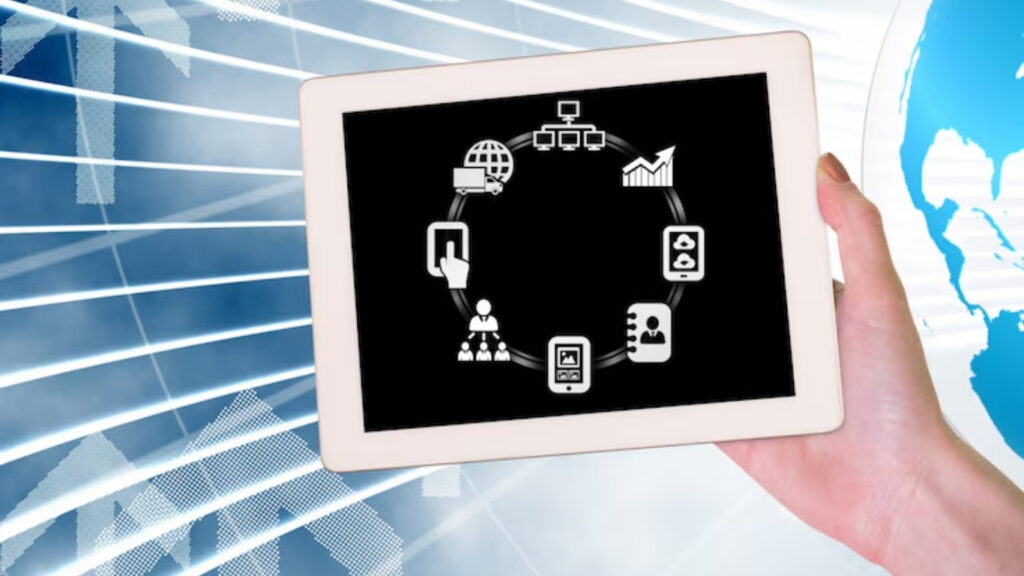In today’s hyperconnected digital age, seamless communication across various platforms is more crucial than ever. From multinational corporations coordinating global teams to remote employees managing real-time collaboration tools, communication synchronization defines operational efficiency. Enter ChannelSynCharma—a cutting-edge AI framework designed to synchronize digital communication across channels with unmatched precision. This revolutionary system is redefining how information flows in businesses, education, healthcare, and beyond.
In this 3000-word article, we’ll explore the foundations of ChannelSynCharma, its core functionalities, the technologies it integrates, real-world applications, challenges, and the future trajectory of this transformative innovation.
1. Understanding ChannelSynCharma
ChannelSynCharma is an artificial intelligence-based synchronization platform designed to integrate and harmonize multiple communication channels in real-time. Derived from the fusion of the terms Channel (communication mediums), Sync (synchronization), and Charma (a stylized derivation of karma symbolizing digital balance), ChannelSynCharm,a aims to create seamless interaction flows between disparate systems and tools.
At its core, ChannelSynCharm,a addresses a growing issue: communication fragmentation. With Slack, Zoom, Microsoft Teams, WhatsApp, email, project management tools, and IoT devices all involved in modern communication, coordination becomes chaotic. ChannelSynCharm,a unifies these into a single synchronized ecosystem using advanced AI.
2. How Does ChannelSynCharma Work?
ChannelSynCharma works on three foundational pillars:
A. Unified Data Aggregation ChannelSynCharma
It begins with aggregating data from all connected channels—text, voice, video, emails, task updates, sensor data, etc. These are parsed using natural language processing (NLP) and real-time transcription engines.
B. AI-Powered Contextual Synchronization
The core AI engine uses contextual modeling and deep learning to:
- Understand the context of each message.
- Determine priority and relevance.
- Route and synchronize it across platforms in real time.
For example, if a project manager updates a Trello card and discusses it on Slack, ChannelSynCharm,a recognizes the correlation and updates relevant data across tools—automatically tagging team members, scheduling follow-ups, and archiving old threads.
C. Intelligent Automation and Prediction
ChannelSynCharma learns user behavior to automate repetitive tasks like sending meeting notes, highlighting action items, or even generating summaries for those who missed a conversation.
3. Key Features of ChannelSynCharma
1. Cross-Platform Compatibility ChannelSynCharma
ChannelSynCharm,a supports integrations with major platforms:
- Slack, Discord, and Teams for messaging
- Zoom and Google Meet for video calls
- Trello, Asana, ClickUp, and Jira for project management
- Email services like Gmail, Outlook
- CRM tools like Salesforce and HubSpot
2. Real-Time Synchronization ChannelSynCharma
Any update made on one platform is reflected across all others almost instantly. This includes document edits, chat summaries, task assignments, or calendar invites.
3. Semantic Thread Mapping ChannelSynCharma
The AI engine links related conversations and topics into semantic threads across different platforms. Users get a unified timeline of events and discussions—regardless of where they happened.
4. Predictive Notifications
ChannelSynCharma predicts what information you’ll need next based on the current context. For example, it might surface a previous email thread before a related Zoom meeting begins.
5. Privacy and Access Control
With built-in encryption, role-based access control, and GDPR-compliance, the system ensures secure and ethical data handling.
4. Real-World Applications of ChannelSynCharma
A. Corporate Communication
Multinational corporations use ChannelSynCharma to synchronize communication across departments, countries, and time zones. Executive summaries are automatically generated after team meetings and pushed to dashboards.
B. Remote Work and Hybrid Teams
Distributed teams use it to ensure no team member misses a critical update. A conversation on Slack might be synced to a daily email, video summary, or voice assistant briefing.
C. Healthcare and Telemedicine
In hospitals, different teams use distinct platforms. ChannelSynCharma ensures real-time updates from electronic health records, video consults, and messaging platforms are synchronized. This improves patient outcomes and reduces communication errors.
D. Education
Schools and universities use it to keep instructors, students, and parents in the loop. From LMS updates to chat discussions, everything is synchronized. AI-generated lesson summaries and schedules help bridge communication gaps.
E. Customer Support
For businesses managing omnichannel support (email, chatbots, calls, tickets), ChannelSynCharma gives agents a unified view of all interactions with a customer, regardless of platform.
5. Technologies Behind ChannelSynCharma
The power of ChannelSynCharma lies in its sophisticated tech stack:
A. Natural Language Processing (NLP)
To understand the intent, context, and tone of communications, NLP models like BERT and GPT-based engines are employed.
B. Deep Learning and Neural Networks
These are used to create user-specific communication models and predictive behaviors.
C. APIs and Middleware Integration
ChannelSynCharma uses custom and open APIs to integrate with hundreds of tools. Middleware logic handles data transformation and compatibility.
D. Real-Time Data Pipelines
Apache Kafka and WebSockets are used for streaming real-time updates with minimal latency.
E. Federated and Edge Learning
Sensitive environments like healthcare benefit from federated learning, where AI learns locally without data leaving the secure environment.
6. Benefits of Using ChannelSynCharma
1. Enhanced Productivity
Less time is spent switching apps or chasing updates. Workers stay focused, and the right information is always at their fingertips.
2. Better Collaboration
Everyone, regardless of the tools they prefer, stays in the loop. Miscommunication is significantly reduced.
3. Improved Decision-Making
With real-time, synchronized data, decision-makers can act faster and more accurately.
4. Reduced Digital Fatigue
ChannelSynCharma minimizes cognitive load by curating only the most relevant information and avoiding redundant notifications.
5. Competitive Advantage
Organizations that implement ChannelSynCharma gain a significant edge in agility, responsiveness, and innovation.
7. Challenges and Limitations
Despite its potential, ChannelSynCharma faces several challenges:
A. Integration Complexity
Custom integrations for niche tools require effort and technical support.
B. Data Privacy Concerns
Although secure, some companies are cautious about allowing AI access to sensitive communication data.
C. AI Misinterpretation
While AI is increasingly accurate, it may still misinterpret context or user intent, leading to synchronization errors.
D. User Resistance
Employees used to manual workflows may resist automation, requiring change management efforts.
8. The Future of ChannelSynCharma
As AI matures, ChannelSynCharma will evolve in exciting ways:
1. Voice-Activated Sync Assistants
Integrated voice bots will allow users to say, “Summarize my day,” or “Find related chats about Project X,” getting instant contextual feedback.
2. Emotion-Aware Communication Sync
AI could detect emotional tone and urgency, prioritizing or delaying synchronization to better suit user psychology.
3. Multilingual Synchronization
Global teams will benefit from instant translation and cultural adaptation, ensuring effective communication regardless of language.
4. Decentralized Communication Models
With the rise of blockchain, ChannelSynCharma may support decentralized communication where data control remains with users.
9. Comparisons with Similar Technologies
A. vs. Zapier/IFTTT
These tools automate tasks, but they lack context-awareness. ChannelSynCharma understands why something is happening and aligns systems accordingly.
B. vs. Microsoft Copilot or Google Duet
While those AI assistants are powerful, they are often limited to a single ecosystem. ChannelSynCharma is platform-agnostic and unifies across ecosystems.
C. vs. Unified Communication Tools (e.g., RingCentral)
These offer central communication hubs, but they don’t synchronize data semantically across existing tools—ChannelSynCharma does.
10. Getting Started with ChannelSynCharma
Organizations looking to implement ChannelSynCharma can follow these steps:
1. Audit Current Communication Tools
Identify platforms in use and their critical interaction points.
2. Define Objectives ChannelSynCharma
Clarify what synchronization goals you want to achieve—faster collaboration, improved reporting, better customer engagement, etc.
3. Choose a Deployment Model
Opt for on-premise, cloud, or hybrid depending on compliance needs.
4. Integrate and Customize
Use ChannelSynCharma’s API and configuration tools to link and tailor workflows.
5. Train Teams ChannelSynCharma
Offer onboarding sessions and documentation to ensure successful adoption.
Conclusion: ChannelSynCharma and the New Age of Communication
ChannelSynCharma is more than a tool—it’s a paradigm shift in how we think about communication. In an era where data overload and disjointed tools hinder productivity, ChannelSynCharma offers a harmonized, AI-powered solution. By intelligently linking platforms, interpreting context, and automating interactions, it unlocks a new level of efficiency, clarity, and responsiveness.
Whether you’re a CEO managing global operations, a teacher balancing remote and in-person instruction, or a healthcare worker juggling data across devices, ChannelSynCharma can transform your daily communication landscape.
As we move further into the era of smart work, tools like ChannelSynCharma are not just innovations—they’re necessities.






